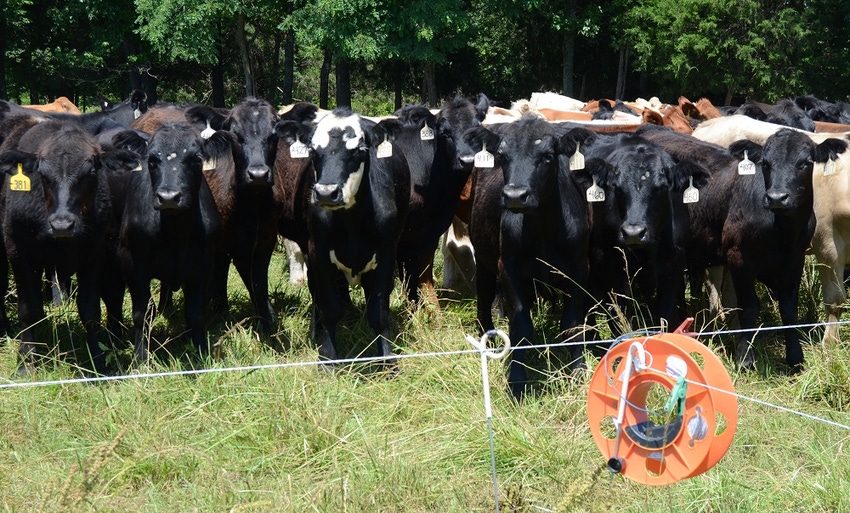
Every year is different and that tends to add to the challenges of our business of growing large amounts of quality forage for our cattle to self harvest and gain weight, grow, and reproduce or get fat.
I am getting reports of it having been cool all spring in the upper Midwest. Some people are complaining about grass growth being slow. Our pastures mostly look good, and as we entered into June I was thinking that cattle performance is about as good as it gets. We’ve had some hot days (90 degrees) and warm nights (70 degrees) in spurts of intense sunlight followed by clouds and moisture and wind. There have been some damaging straight-line winds and a few smaller tornados.
Memorial Day I had guests with me in the pasture. A local university professor and a young producer/retailer came to take a close look at the cattle, the grass and the soil. The cattle are 95% shed off and most are shining like new money. I give most of the credit to the plant diversity that has shown up the past several years. The routine addition of calcium on our old non-limestone soils has seemingly made an improvement that gets better every year. Macro and microbial life below and above the surface of the soil is rampant behind the cattle. Manure is being moved into the soil in short order after dropping behind the steers. It kinda proves that the whole system is tied closely together and interconnected. Everything affects and effects everything. Cattle require lots of plants, and plants require cattle, and soil requires both. Humans require all three.
In the past we have attempted to simplify and reduce the “goings on” of the ecosystem to fit our desires as has most of historic mankind. Declaring war on everything that we knew little about was our teaching. Not everything we were taught was wrong but there was plenty enough to break us. We are really slow to declare war these days. For example, we just thin the blackberry briars and that’s about it.
Well, that is so unless we have a bunch of fescue after April 10.
We need the fescue to be gone before May 1. In our country and in some locations it has needed a light paraquat burn annually for several years for warm-season forage to have a chance in the summers.
A producer called me from northeast Oklahoma a few of weeks ago and sent some photos. I have similar pictures from as far north as mid-Iowa. Wow, Kentucky 31 has invaded the north. It looks like a sea of fescue, and that carries a flood of problems.
I’ll promise that if you’ve got a significant stand of Kentucky 31 fescue you will not experience “about as good as it gets.”
About the Author(s)
You May Also Like






